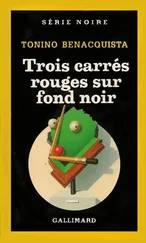Caroline Åberg - Stockholm Noir
Здесь есть возможность читать онлайн «Caroline Åberg - Stockholm Noir» весь текст электронной книги совершенно бесплатно (целиком полную версию без сокращений). В некоторых случаях можно слушать аудио, скачать через торрент в формате fb2 и присутствует краткое содержание. Город: New York, Год выпуска: 2016, ISBN: 2016, Издательство: Akashic Books, Жанр: Детектив, на английском языке. Описание произведения, (предисловие) а так же отзывы посетителей доступны на портале библиотеки ЛибКат.
- Название:Stockholm Noir
- Автор:
- Издательство:Akashic Books
- Жанр:
- Год:2016
- Город:New York
- ISBN:978-1-61775-297-1
- Рейтинг книги:3 / 5. Голосов: 1
-
Избранное:Добавить в избранное
- Отзывы:
-
Ваша оценка:
- 60
- 1
- 2
- 3
- 4
- 5
Stockholm Noir: краткое содержание, описание и аннотация
Предлагаем к чтению аннотацию, описание, краткое содержание или предисловие (зависит от того, что написал сам автор книги «Stockholm Noir»). Если вы не нашли необходимую информацию о книге — напишите в комментариях, мы постараемся отыскать её.
Copenhagen Noir
Helsinki Noir
Stockholm Noir — читать онлайн бесплатно полную книгу (весь текст) целиком
Ниже представлен текст книги, разбитый по страницам. Система сохранения места последней прочитанной страницы, позволяет с удобством читать онлайн бесплатно книгу «Stockholm Noir», без необходимости каждый раз заново искать на чём Вы остановились. Поставьте закладку, и сможете в любой момент перейти на страницу, на которой закончили чтение.
Интервал:
Закладка:
“No, Grandfather’s just a little time crazy,” the Ditz told him on the train ride back to Kallhäll. “His routine is always the same, year round. At half past eight he rolls out on the balcony to make sure the Swedish flag has been hoisted up on Kastellholmen, so he knows that we aren’t at war. At ten the home help comes and drops off lunch and at twelve he eats. At one he has a glass of brandy. And he listens to the news on the radio all day...”
“Does he ever go out?” Klas asked.
“Only out onto the stairwell,” the Ditz said. “He rolls out at three thirty to water the fig tree.”
Klas remembered that tree — it stood in a large limestone pot outside her grandfather’s door. He nodded at the Ditz and pondered.
He decided to become more punctual.
Every morning, after having met the Ditz’s grandfather, he went into the city earlier than he needed to and headed down to Strandvägen. Just before eight thirty, he stood on Strandvägen in the shelter of some trees and observed the windows of 13B.
The Ditz was right: her grandfather was like a cuckoo clock. At exactly eight thirty the balcony door opened and the major general rolled out in his wheelchair. Five minutes later the door shut again.
Like a fucking cuckoo clock. And this suggested that he was equally punctual the rest of the day too.
With his eyes locked on the apartment’s high window one morning, Klas decided what he was going to do.
It was a Thursday like any other that he took the cap and gloves to work at Sailor Store. Later that afternoon he complained of a sudden migraine and went into the staff room to rest. He carefully locked the door, but didn’t make it onto the couch; the store had a back door and he used it to sneak out.
Out on the sidewalk he glanced at the clock; it was 3:18. The day was cloudy, but there was no rain in the air.
He started across the dry asphalt. He didn’t run, but took long strides. Down to Strandvägen.
Six minutes later he was at the door of 13B. It was locked, but he had memorized the code the Ditz had punched in.
Half a minute later he stood inside the dark stairwell and pulled on his gloves and cap. He listened anxiously for any sound. Everybody was at work, everything was still. And so was he, after he’d snuck up the wide marble steps.
At 3:28 Klas reached the second floor and listened again. The stairwell was silent, all the apartment doors were shut.
A minute later he stood in the dark on the fourth floor. Waiting.
At exactly 3:30 he heard a door open on the fifth floor. The old man coughed. A soft creaking noise, the sound of rubber wheels rolling across the stone floor.
Klas clenched his jaw. He summoned the old rattling elevator up from the first floor so that the racket would cover any other noises. Then he started up to the fifth floor.
Now he could see the wheelchair on the landing right above him; the back of a naked head visible. The Ditz’s grandfather was hunched over in his chair, facing away from Klas.
The major general mumbled to himself as he fiddled with his fig tree. The chair’s back wheels were only a few inches from the top step.
The elevator continued to rattle. All the doors were shut. Klas was set.
Now.
He stepped up with an outstretched hand, grasped the wheelchair’s steel rim, and quickly jerked it back in one sharp move. The wheels went over the marble edge, the whole chair tipped back. Klas stepped aside and saw the major general’s hands flap like startled birds in the air. He fell down, the back of his head first, his body somersaulting down the stairs, landing with a low thud at the bottom.
Klas didn’t even glance at the old man. He stopped the wheelchair’s fall so it didn’t make a loud clatter, climbed the stairs, and dragged the heavy stone pot toward him.
Turning around with the pot in his hands, he saw that the major general was still alive. He’d landed on his back with his head to the side. Klas bent over him, balancing the stone pot on the stair right above the old man’s wrinkled brow.
The Ditz’s grandfather recognized him; when their eyes met he understood exactly what Klas was about to do; he opened his mouth and let out a terrified breath of cognac. However, no cry for help could escape before Klas let the stone pot fall. The pot’s edge struck its target perfectly, causing the major general to shudder one last time.
Klas was finished here. He stood and fled. The elevator had since stopped on the fourth floor, but he took the steps in long strides. The stairwell remained empty the whole way down to the bottom floor. No one had heard or seen a thing. He stripped off the cap and gloves on the fly.
Out through the door, out onto the street. Look relaxed now, not hounded.
He was back at work five minutes later — it was only 3:43. He entered through Sailor Store’s back door, stepped into the shop, and told the boss that he felt better.
His boss looked him over. “Are you sure? You seem sweaty.”
Klas smiled quickly and wiped his forehead. “Just a slight fever.”
At five thirty that evening he headed home to Kallhäll, where the Ditz stood slicing beets.
Klas closed his eyes and kissed her neck. Then he sat next to the TV, awaiting the vile veggie meal. And, obviously, anxiously waiting for the telephone to ring with a call from Stockholm.
And so it did late that evening. It was a death report, a tragic fall down the stairwell, an accident that sometimes happens to old men, especially when there is alcohol in their system. The police didn’t suspect any foul play, and Klas wrapped his arms around his sobbing girlfriend and sighed.
The reading of the will was held eight days later, and the Ditz took the commuter train alone to the lawyer’s office. She had several handkerchiefs with her, she was still grieving.
Three hours later she arrived back in Kallhäll, her eyes red-rimmed, and immediately began slicing and dicing in the kitchen.
Klas joined her at the sink and quietly asked: “How did it go, sweetheart?”
“Good,” she said softly.
“Did they read the will?”
“Yes.”
“And you’re inheriting...?”
“Yes...”
Klas closed his eyes in the narrow kitchen and felt nearly intoxicated by success; he was tired, he’d slept poorly this last week, but he saw an enormous apartment with a broad balcony before him. Mine, he thought.
“... and my cousins.”
“What did you say?”
“My cousins and I are to inherit everything,” said the Ditz. “It was cool to see them again.” Her voice actually sounded a little happier now. The beets were chopped, she began to mash them in a glass bowl.
“What cousins?” asked Klas.
“My mother’s brother’s kids,” she replied, smiling.
He stared at her, didn’t smile back. “You said he was alone. That you were all he had.”
“Grandfather? Yeah, he was totally alone. I mean, my cousins are only teenagers... Obviously, they didn’t come by so often. They were too young for that—”
“Where do they live?” Klas interrupted. “Here in Stockholm?”
“Live?”
“You have to tell me where they live. I want an address.”
Just teenagers, he thought. Teenagers don’t sit in wheelchairs and they hardly drink cognac, but they can still meet bad ends. Get run over by a car, or pushed from a ferry.
Klas stepped closer to the Ditz. “I’ll take care of it. We’ll make it out...”
“What are you talking about?”
He nodded toward the kitchen window, toward the forest beyond. “... out of here. We’ll move into the city. You’ll inherit everything, the whole apartment... just like I planned for you.”
The Ditz stared at him, confused. “Grandfather fell,” she said softly.
Читать дальшеИнтервал:
Закладка:
Похожие книги на «Stockholm Noir»
Представляем Вашему вниманию похожие книги на «Stockholm Noir» списком для выбора. Мы отобрали схожую по названию и смыслу литературу в надежде предоставить читателям больше вариантов отыскать новые, интересные, ещё непрочитанные произведения.
Обсуждение, отзывы о книге «Stockholm Noir» и просто собственные мнения читателей. Оставьте ваши комментарии, напишите, что Вы думаете о произведении, его смысле или главных героях. Укажите что конкретно понравилось, а что нет, и почему Вы так считаете.












